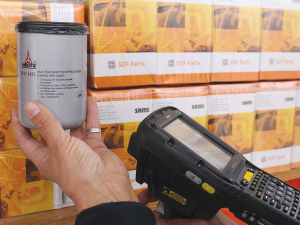M.I.A.
OPINION: The previous government spent too much during the Covid-19 pandemic, despite warnings from officials, according to a briefing released by the Treasury.
 There are some concerns in the machinery sector about urgent air freight parts orders, as there are fewer planes making the trip to the Southern Hemisphere.
There are some concerns in the machinery sector about urgent air freight parts orders, as there are fewer planes making the trip to the Southern Hemisphere.
How is New Zealand's agricultural machinery industry coping with COVID-19?
Rural News machinery editor Mark Daniel caught up with some of the key players in the agricultural machinery industry to find out what effect COVID-19 was having on their businesses’ and where things were heading.
New Zealand Manager for AGCO – distributors of the Massey Ferguson, Fendt and Valtra brands to name a few – Peter Scott says he’s generally happy with the levels of business, with sales continuing to be made and stock available on hand.
“Looking forward to the spring, we will have stock available – particularly in things like grassland machinery that saw sales slowed by the prolonged drought,” he says.
“We are getting daily updates about factory closures, production disruption and logistics issues. We envisage there may be some slippage in deliveries. Today, one shipping company has advised us that they will reduce the frequency of boats arriving in NZ from three to two vessels per month,” Scott explained.
“Our dealers are all independently owned, so are working under the Government guidelines and we are leaving it to them to decide what are urgent and non-urgent jobs.”
Graeme Leigh, general manager machinery for the Power Farming Group, suggested it was a “mixed bag” with indents being a little slow in NZ. However, he says sales are “booming” over the ditch in Australia – after four bouts of good rain and a 100% capital investment allowance introduced by the Australian government.
Leigh reports that some PF supplier factories were closed in Italy and Germany, while the Kverneland factories in the Nordic countries were operating at near 100% capacity. He says some factories were seeing reduced production as they faced logistics problems securing supplies of componentry from outside contractors.
“We have ongoing concerns about rising freight costs, the availability of containers, reduced sailings and the swings in currency against the US dollar,” he added.
“Closer to home, we’ve already seen cost spikes in sending stock from NZ to Australia, with a 40-foot container increasing by US$ 700 – a rise of about 25%. Our freight forwarders in Europe are telling us that Ro-Ro (roll on-roll off) costs are also likely to rise by up to 15%,” Leigh told Rural News. “Fortuitously, we operate a policy of forward exchange cover when we place orders on our supplier factories – so at this time we should be able to absorb rising costs. But we will have to keep a close eye on freight costs.”
Tim Fanning, general manager of CKNZ – the distributor for Case IH and Kuhn products – says the supply chain is being disrupted globally, with all its European and North American factories closed. He says this is likely to lead to logistics challenges.
However, Fanning points out that Case-IH NZ currently holds good stocks to cover the short to medium term. He says the current focus is on supporting customers, with the company holding good stocks of parts at its Palmerston North base. There are some concerns about urgent air freight parts orders, as there are fewer planes making the trip to the Southern Hemisphere.
“Our dealer network is working at reduced capacity, but like other businesses in the sector we have MPI approval to supply essential services –to keep machinery running for food production or animal welfare,” Fanning told Rural News.
“Here at CKNZ – and at our dealers – there is full compliance with the Government’s guidelines and protocols around health and safety for staff, customers and their families – alongside that of the general public – while ensuring the country’s farmers can put food on the table for all Kiwis.”
The Meat Industry Association of New Zealand (MIA) today announced that Chief Executive Officer Sirma Karapeeva has resigned from the role.
The winners of the 2026 Hawke’s Bay/Wairarapa Dairy Industry Awards were announced at the annual awards dinner held at Copthorne Solway Park in Masterton on Thursday evening.
Environment Southland is welcoming this week’s decision by the Environmental Protection Authority (EPA) to approve the release of Blaptea elguetai, a leaf‑feeding beetle that will help control the highly invasive Chilean flame creeper.
This March, the potato industry is proudly celebrating International Women’s Day on 8 March alongside the International Year of the Woman Farmer, recognising the vital role women play across every part of the sector — from paddocks and packhouses to research, leadership, and innovation.
Fruit trader Seeka posted a record profit and returns to shareholders in 2025.
Recent weather events in the Bay of Plenty, Gisborne/Tairawhiti, and Canterbury have been declared a medium-scale adverse event.

OPINION: A mate of yours truly reckons rural Manawatu families are the latest to suffer under what he calls the…
OPINION: If old Winston Peters thinks building trade relations with new nations, such as India, isn't a necessary investment in…